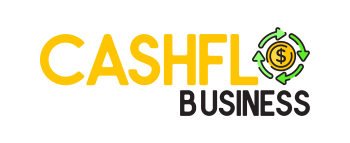
Table of Contents:
- Understanding Personal Finance Fundamentals
- Staying Informed: Keeping Up with Financial and Tax Changes
- Tackling Debt: Techniques for Financial Freedom
- The Art of Saving: Cultivating a Savings Mindset
- Exploring Tax Planning and Its Benefits
- Deductions and Credits: Reducing Your Tax Liability
- Technology in Personal Finance and Tax Preparation
- Professional Financial Advice vs. DIY: What’s Right for You?
- Preparing for Life’s Major Financial Events
- The Impact of Economic Trends on Personal Finance
Key Takeaways:
- Financial literacy is foundational for sound personal finance management.
- Debt management strategies can set the stage for financial stability.
- Consistent saving is fundamental for long-term financial security.
- Effective tax planning can lead to substantial savings and financial growth.
- Embracing technology can streamline your personal finance and tax preparation efforts.
Understanding Personal Finance Fundamentals
The journey to financial well-being starts with a solid grasp of personal finance fundamentals. Financial literacy empowers individuals to make savvy decisions that resonate with their lifestyle and goals. A good starting point is budgeting; pinpointing your income and expenditures sets the stage for conscious spending and effective saving. Delving into investment can be the next step—understanding different types of assets like stocks, bonds, and mutual funds can diversify your portfolio and enhance your wealth over time. Sound financial habits and informed decision-making can significantly influence your financial trajectory.
Staying Informed: Keeping Up with Financial and Tax Changes
The financial world is ever-changing, with tax codes and regulations frequently updated. Understanding the latest financial tools and tax laws can be the difference between capitalizing on opportunities and falling behind. Authorities like the IRS regularly release tax updates and guidance that can affect personal finances. Keeping tabs on these updates and adapting your financial and tax plans will help you maintain sound financial health. In pursuing financial prudence, simple money-saving strategies like coupons can add significant savings over time. Combining these everyday habits with a structured financial and tax plan enables a path to savings and long-term financial well-being.
Tackling Debt: Techniques for Financial Freedom
Overcoming debt is akin to untangling oneself from financial chains. Techniques such as the debt snowball—where small debts are tackled first, providing the motivational spur to pay off larger debts—and the debt avalanche—prioritizing debts with the highest interest rates—can be highly effective. A crucial component of debt reduction is understanding the impact of your financial habits on your credit score. Regular, timely payments and maintaining low credit utilization are practices that improve credit health. Eliminating debt provides peace of mind and improves your overall financial wellness.
The Art of Saving: Cultivating a Savings Mindset
Developing a habit of saving is the cornerstone of financial prudence. It involves not just stashing away funds but nurturing a mindset prioritizing future financial security over immediate gratification. Determining your saving goals and utilizing automated tools can ensure consistency in growing your savings. An emergency fund, usually three to six months’ worth of expenses, is a critical safeguard against unforeseen circumstances like medical emergencies or sudden unemployment. Embracing the art of saving requires discipline and a long-term perspective but pays off with lasting financial resilience.
Exploring Tax Planning and Its Benefits
Tax planning is an essential component of financial strategy that focuses on understanding how to manage your finances to lower the amount you pay in taxes legally. It is not just about deferring income or increasing deductions but also involves identifying tax-efficient investment opportunities, such as Roth IRAs or 529 education savings plans. Learning about the intricacies of tax planning can significantly impact wealth accumulation and financial stability. Engaging in tax planning can enable more strategic, long-term decisions for a secure financial future.
Deductions and Credits: Reducing Your Tax Liability
Getting acquainted with the variety of tax deductions and credits available can dramatically reduce your tax bill. Deductions lower your taxable income, while credits reduce your tax liability directly. Common deductions include mortgage interest, education expenses, and charitable contributions, while credits can be earned for energy efficiency improvements, certain education expenses, and families with children. It’s worth the effort to dig deeper, as many taxpayers may overlook less obvious deductions and credits that could save them a considerable amount. Any tax strategy must be carefully considered to ensure compliance with IRS regulations and to prevent unnecessary scrutiny.
Technology in Personal Finance and Tax Preparation
The rise of technology has revolutionized personal finance management and tax preparation. Budgeting apps help track spending and saving, while investment apps make it easier to grow wealth. In tax preparation, intuitive software programs have replaced piles of paperwork with programs offering step-by-step guidance, error checking, and suggestions for maximizing refunds. As technology continues to evolve, it is poised to make financial organizations more intuitive, less time-consuming, and within the reach of everyone with a smartphone or computer.
Professional Financial Advice vs. DIY: What’s Right for You?
Navigating the world of finance alone can be daunting, as uncharted waters of complex investments and tax regulations await. Seeking professional financial advice could be a worthy investment for those requiring expertise in specialized areas such as retirement or estate planning. For others, a wealth of knowledge exists online, empowering individuals to learn and manage their finances. Free resources, informative blogs, and comprehensive courses can provide enough insight to manage one’s finances effectively. Whether you opt for expert guidance or self-management, staying informed through credible sources is crucial.
Preparing for Life’s Major Financial Events
Life’s milestones—like buying a home, having a child, or transitioning to retirement—are both joyous and demanding financially. Planning for these events involves a mixture of saving, investing, and risk management. College savings plans such as 529s offer tax-advantaged ways to save for education, while retirement accounts like IRAs and 401(k)s help ensure a comfortable retirement. Estate planning, involving wills, trusts, and beneficiary designations, is crucial for managing your legacy. Proactive financial planning can make these significant life events a cause for celebration, not stress.
The Impact of Economic Trends on Personal Finance
Economic trends deeply influence our finances, and understanding them is vital for making informed saving and investment decisions. Inflation can erode purchasing power, necessitating strategies for hedging against it, such as investing in assets that traditionally outpace inflation. Similarly, market downturns require a defensive approach, emphasizing savings and safe-haven investments. Whether it’s bull or bear markets, recessions or booms, adapting your financial strategy to economic trends can mitigate potential risks and capitalize on opportunities.



